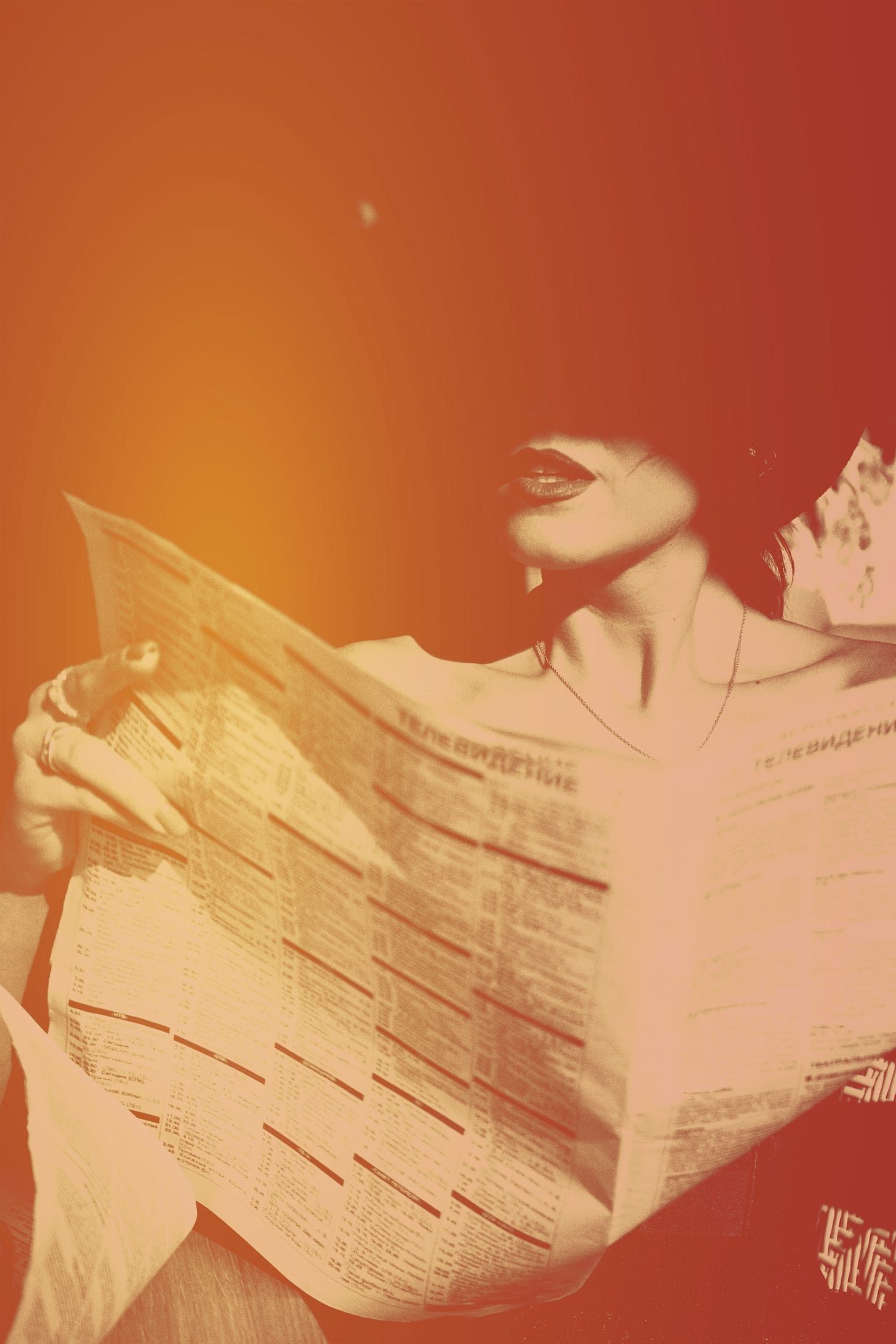She looked over at me and smiled.
Jenna Bright came flouncing into the newsroom, making a splashy entrance in white short shorts and clog-style shoes, plopping down her laptop and writing materials on the copy desk next to me.
A NIGHT ON THE COPY DESK BY STEVEN McBREARTY 34THPARALLEL MAGAZINE ISSUE 106
Waving to my fellow copy editors, waving nervously, almost girlishly, I checked in at the copy desk of The Daily Texan, student newspaper at the University of Texas in Austin. It was a Tuesday night, September, early in the fall semester. Though I was a senior citizen of age 24, I was new there, a few weeks into working for the paper. I was eager to display my skills, impress my fellow staffers.
The newspaper room was a dungeon, a basement in the communications building, a room without windows. The fluorescent light was flat and muted, seeming to seal you in. The copy desk was a long, rectangular set of Army Surplus-style wood veneer tables pushed together, open in the center—a hollow square, in the vernacular.
Five or six …

